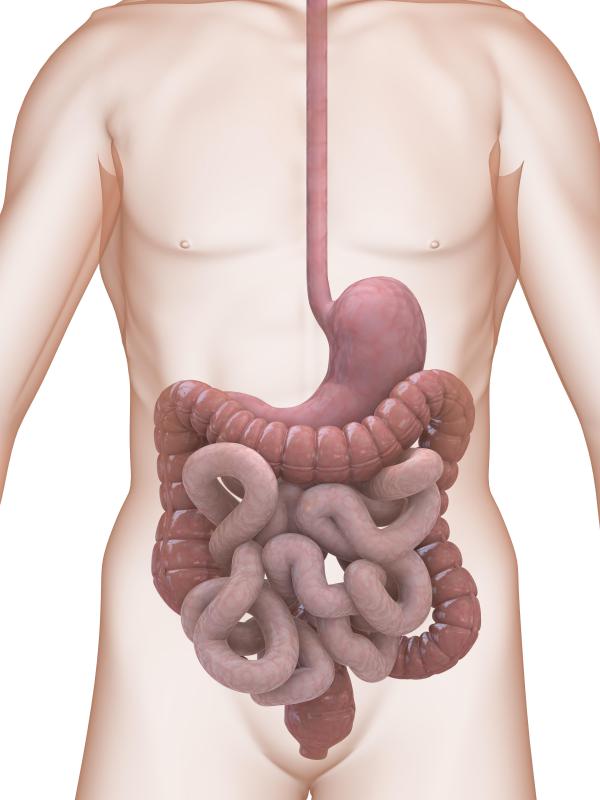At WiseGEEK, we're committed to delivering accurate, trustworthy information. Our expert-authored content is rigorously fact-checked and sourced from credible authorities. Discover how we uphold the highest standards in providing you with reliable knowledge.
What Are the Causes of Gastroparesis?
Gastroparesis is a potentially serious medical condition that affects stomach function. The causes of gastroparesis can include infection, disease, and the regular use of certain medications. In many cases, the causes of gastroparesis are frequently associated with common systemic conditions, such as diabetes. Individuals who have undergone surgery to correct vagus nerve damage are also likely candidates for gastroparesis symptoms. Treatment for the causes of gastroparesis can range from dietary changes to the use of medication and surgery to restore stomach function.
Vagus nerve damage is most often associated with gastroparesis, or stomach paresis or paralysis. Essentially overseeing the digestive process, the vagus nerve tells the stomach when to begin clearing out food and ushering it into the lower digestive tract. If the vagus nerve is damaged in any way, a disruption in the digestive process occurs. The muscles within the stomach don’t know what to do and, as a consequence, not all the stomach’s contents are expelled into the small intestine.

Delayed gastric emptying can be caused by infection that interferes with the digestive process. Individuals who regularly use opioids or medications to treat depression can develop gastroparesis symptoms since such medications impair intestinal function. Conditions affecting the nervous and metabolic systems may also hinder digestive function contributing to delayed gastric emptying. It is not uncommon for individuals who have undergone surgery to their digestive tract to develop gastroparesis symptoms.

Commonly, individuals with a systemic disease that compromises immunity and organ function, such as hypertension or diabetes, are at greatest risk for delayed gastric emptying. For instance, consistently high blood sugar can alter the chemical balance of the digestive system leaving blood vessels starved for oxygen, which hinders circulation and the health of the vagus nerve. Over time, nerve function can become significantly compromised, triggering the onset of delayed digestion. Autoimmune disorders, certain cancers, and neuromuscular disease may also impact vagus nerve function, leading to symptom onset.

As with so many other conditions, the causes of gastroparesis symptoms may also be idiopathic. In cases of idiopathic gastroparesis, there is no single, identifiable cause for symptom onset. Individuals may undergo testing and treatment for their condition and yet never learn what caused them to become ill.
If gastroparesis symptoms are ignored, existing conditions may become worse. For example, a diabetic who develops gastroparesis and does not seek treatment could experience a worsening of his or her diabetic symptoms. Additionally, undigested food can contribute to the development of hard lumps within the stomach, called bezoars. If they are not removed, bezoars can significantly impact digestive function, placing the individual at risk for further complications.

Treatment for the causes of gastroparesis can involve significant dietary changes, such as including more easily digestible, low-fat foods. Individuals are often encouraged to limit their fiber intake and consume more water throughout the day. When dietary changes alone prove insufficient, stimulant medications may be given to promote muscle contractions within the stomach. If neither diet or medication therapy works, surgery to create an artificial opening or bypass to healthy, functional stomach tissue may be an option for some people.
AS FEATURED ON:
AS FEATURED ON:

















Discuss this Article
Post your comments